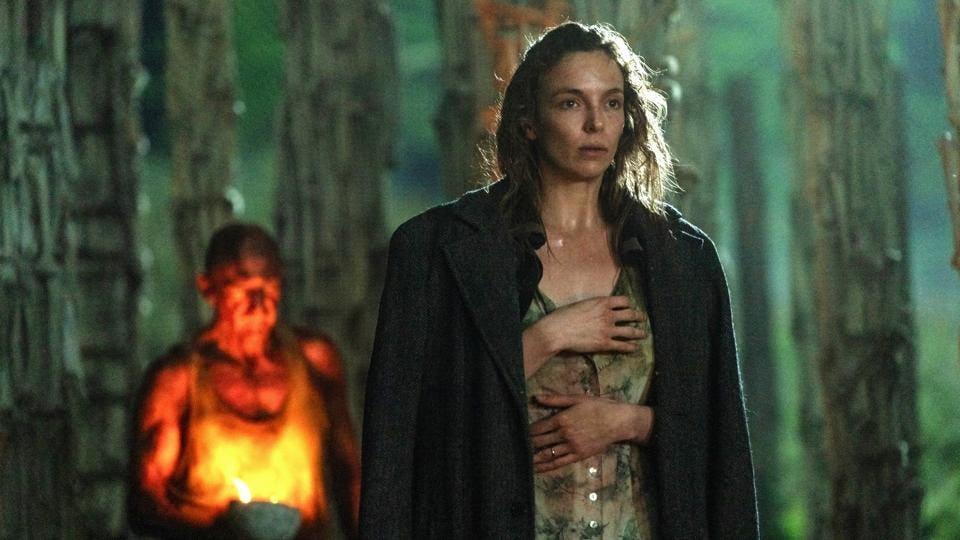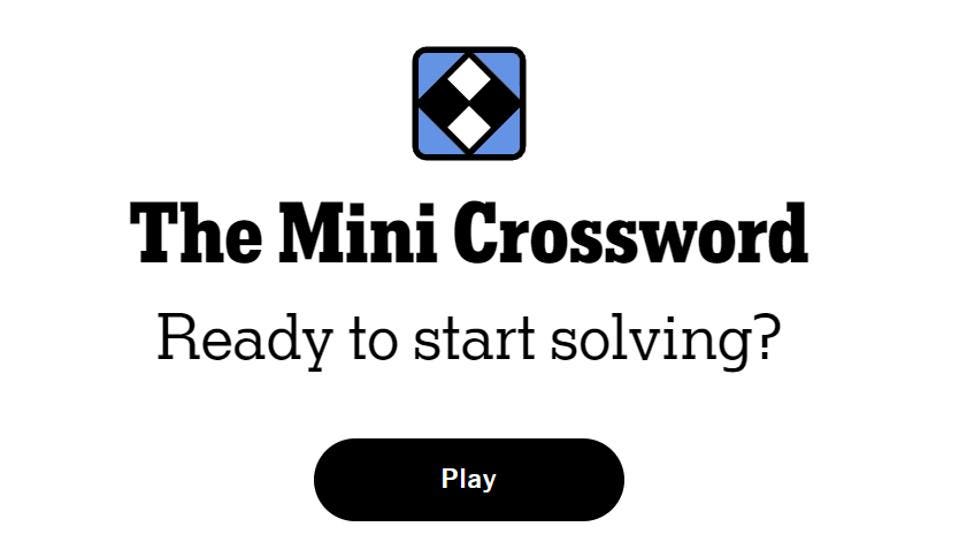‘A Profound Waste of Time’ has set the bar for printed gaming media, even though only four issues have been produced in ten years.
A Profound Waste of Time
Gaming content is created, consumed, and discarded at a ridiculous pace, and it’s only getting quicker. Maybe we should take a leaf from one of the best and most beautiful game publications of them all, which defies this trend — its backers wait a year for each issue, and they wouldn’t have it any other way.
A Profound Waste of Time (APWOT) has been running for nearly ten years, but in that time, only four issues have been released, while fans eagerly expect issue five in the coming weeks. If anything, the build-up to each issue has become an event in itself, for good reason: APWOT is arguably the best example of print media celebrating the industry, exploring the art and culture of gaming with the same seriousness that the highest quality literary magazines bring to films, music, or literature.
APWOT is the brainchild of its creative director, Caspian Whistler, who turned a college passion project into his life’s most significant work. What began as a free publication posted on internet forums has now exploded into games publishing’s worst-kept secret, with the financial backing to prove it. This July, a Kickstarter campaign for a boxed reprint of its first three issues raised a whopping £186,000 ($254,000) — over six times its modest target of £30,000. It’s hardly surprising; as word has spread, APWOT latecomers have scrambled to catch up on what they missed.
Caspian Whistler, the creator of ‘A Profound Waste of Time’.
Felicity McCabe
“Every time I do a Kickstarter campaign, I worry that this is the one where the wellspring of generosity runs dry,” says Whistler. “Thankfully, people still seem to really love APWOT and still demand it, even with these old issues from many years ago.”
Given how many once-dominant printed publications found themselves quickly out of print — especially in the gaming industry — APWOT continues to prove that intentional slowness and care can be a worthy business model.
“If you’re going to cut down a tree, you’ve got to really believe in what you’re doing it for,” Whistler says. “The world doesn’t need more things in it, and I always come to the publications I create with the idea that we’re creating something really worthwhile that will last for a long time. I think the audience understands and appreciates APWOT for that reason.”
The rockiest start
A Profound Waste of Time’s origin story is stressful: an idea that seems like a dream to begin with, only to hit wall after wall. Still, 32-year-old Whistler — a freelance graphic designer born and based in London — overcame such tremendous odds that you can’t help but cheerlead for the success he now has.
As with many passion projects, A Profound Waste of Time began as an idea at college, during his time studying graphic design and communication at the University of the Arts London. He realized that carefully considered, beautifully made publications existed for every other discipline in the arts and culture sector — film, poetry, theatre, even pottery — but there wasn’t anything for games.
‘APWOT’ routinely interviews major players from the world of gaming, such as Rodney Greenblat, the artist behind ‘PaRappa the Rapper’.
A Profound Waste of Time
“I think a lot of that was due to many people dismissing games as violent or frivolous distractions,” says Whistler. “It’s like someone only being aware of Marvel films, and then deciding cinema in general just isn’t for them.
“Throughout my whole life as a gamer, I was exposed to groundbreaking, esoteric, and creative works, and I wanted to give these a spotlight, in the hope that there were other people like me with similar tastes out there.”
Whistler started by creating a gaming zine that he thought might subvert the traditional norms of the industry. “The thing is, videogame discourse and the culture around them were already so defined by a caustic, aggressive tone that I needed to go in a different direction,” he explains. “Ironically, the most rebellious thing I could do for the games scene was [to] try and make something that was beautiful, welcoming, and thoughtful.”
APWOT’s name responded to many authority figures in his early days, who were dismissive of games, calling them simple distractions that would ruin his life. A Profound Waste of Time became a “tongue-in-cheek nod to the state of the industry itself.”
“Starting a new games magazine in that environment, which was deliberately not online in any way, seemed like a futile exercise that was doomed to fail,” he says. “I wanted to embrace that and communicate something that felt passionate but self-aware.
“Yes, games can be frivolous and silly. Yes, physical games magazines aren’t as viable anymore. And yes, games are profound and inspiring, and beautiful physical media about them should still exist.”
He posted his early zines to Destructoid, where they were featured on the front page, prompting a surge of attention and comments from people wanting to buy a copy. “It was the first time anything I had made had ‘caught on’ online, and while I had no aspirations to keep going with it, it made me think there might be an audience for this,” he says.
One year later, he canvassed the community for article ideas. Dozens submitted, giving him enough to create something bigger. Before long, it seemed like a gig that only Kickstarter could support.
Taking a leap
When formulating the first-ever major issue, Whistler says he didn’t think anyone was doing 100% advert-free, fully illustrated video games magazines, and it felt wrong to him, especially as someone who dabbled in — and at one time wanted to major in — illustration.
The special edition of the first issue of ‘APWOT’ glows in the dark, starting a trend of experimental covers for those willing to pay a little more for the journal.
A Profound Waste of Time
He explains: “I felt that by using illustration instead of screenshots, which are already abundant and better viewed on digital formats, I could lean into the strengths of print and show people stuff that was reimagining games they’re already familiar with, giving them a unique edge.”
With a strong MO and plenty of writers, A Profound Waste of Time first went to Kickstarter and became a smash hit, getting nearly 200% of its funding goal. However, the original asking amount was for a product significantly smaller than what Whistler ultimately delivered. He says: “It’s the sort of daft thing you do when you’re fresh out of uni with lots to prove.”
With Issue 1, he knows he was out of his depth. “I was a fresh graduate, and I’d never made a project on that scale before. When production delays kept happening, I felt immense pressure to deliver something even more amazing than I pitched, as if I had to blow people away, or I would never be able to work as a designer afterward.
“However, to be told in such a positive way that your ideas are valid and there is an audience out there for your work… It left a big impact on me for sure.”
It was also a valuable learning experience. The first edition of Issue 1 had a single significant spelling error that he and his proofreaders missed. “It was galling and difficult to realize that even when you triple-check something, mistakes can still creep through. It was an essential lesson in vigilance, but also a reminder of the inherent impossibility of chasing perfection. Sometimes mistakes still show up despite your best efforts.”
It took a year and a half to make the issue — a “real trial by fire” that required a long, post-launch break to recuperate, and one that saw him using APWOT as a proof of concept to get a decent job in the design industry, where he worked until he found the spark to return to the magazine and continue its journey.
Still, Issue 2 of APWOT presented an entirely different and even more immense challenge: after securing funding in December 2019, the pandemic hit. It caused massive delays for countless reasons: writers’ lives had turned upside down, the cost of production increased dramatically, post-Brexit rules came into effect, and the U.S. Postal Service became much more expensive.
Issue 2 of ‘APWOT’ nearly bankrupted the whole project.
A Profound Waste of Time
“It nearly bankrupted the entire APWOT project, but thanks to the support of the audience in backing a reprint campaign, we were able to recover well,” Whistler says. “Thankfully, since the chaos of those first two issues, I’ve been able to release APWOT steadily on an annual basis since Issue 3’s campaign in late 2022, and I hope that can last a long time.”
A spring in his step
Each issue of A Profound Waste of Time begins with one crucial element: the cover story. “If we don’t have that, we don’t have an issue,” says Whistler. This anchor feature informs not only the theme of the issue, but also the broader Kickstarter campaign. From there, Whistler begins editing the Kickstarter video, lining up interviews and features, and — once the campaign is successful — commissioning the rest of the content.
The magazine is produced over a year, with articles and illustrations developed concurrently. Every piece goes through several rounds of editing and layout refinement before the final product is printed and shipped in the autumn.
The magazine’s art direction is deeply hands-on. “I’m constantly tweaking the layouts to get things to feel balanced,” says Whistler, who does all the design work solo. APWOT is known for its bold visual style, and Whistler emphasizes its intentionality. “I want to cram in as much as we can, because I make each issue as if it’s the last one ever. That maximalist energy is something I’m always reining in.”
Whistler’s maximalist approach is expressed through his art style, plus a few surprise extras.
A Profound Waste of Time
While early zines relied on submissions, writers are now carefully selected to ensure variety and depth of content. A Profound Waste of Time doesn’t take open pitches, though “it’s not a hard and fast rule.” Instead, he prefers to work with a consistent roster.
The magazine also thrives on cross-disciplinary dialogue, which has led to a much broader appeal than initially predicted. “I want to show the humanity of the people who make the games we love,” Whistler continues. “I sometimes get nice letters saying ‘I have no interest in games, but I love your mags and it’s made me curious,’ which makes me so happy.”
Illustrators rarely work in isolation; as art director, he’s very prescriptive, even if it’s “always a conversation.” He kicks things off with sketches, then collaborates closely with artists to develop each spread. While longtime editor Simon Parkin now leads the editorial front, Whistler continues to contribute to content development and handles all visual design. “We do multiple passes between him and me for each article, and it’s incredibly fun and addictive,” he explains.
Finally, A Profound Waste of Time’s special editions continue to push the boundaries of making a great first impression. Issues have glowed in the dark, reacted to heat, or simply matched their cover story with delicate cuts. “There’s so much stuff you can do in physical media like print that you can’t do in pixels,” Whistler says. “I still have loads of ideas for what I want to do.”
The special edition of Issue 4, themed around ‘Portal’, adopted a cut-out cover.
A Profound Waste of Time
An eye on the bottom line
One of the most significant problems for print publications — especially crowdfunded ones — is that both they and their audience often fail to account for creators paying themselves for their time and hard work. While Whistler himself overlooked this in the early stages of APWOT, going largely unpaid for his journal, he ensured that contributors were given their dues. However, he eventually allocated himself a wage for his work, even if it still requires subsidization from his freelance career.
He says: “I always put the project first because I want to deliver the best thing I possibly can for people, but I would love to get APWOT to the point one day where I can sustain myself and live off of APWOT alone, and give it my full focus.”
Kickstarter, too, remains Whistler’s preferred medium to raise cash, even if it has its drawbacks. “It’s genuinely changed my life and has only improved in recent times,” he says. “Crowdfunding websites are one of the best things to happen to the internet in the last 20 years, as they’ve made so many creative endeavors and projects possible.
“Still, having to maintain a constant stream of updates for your audience can be exhausting. You can spend so much time updating your audience that it takes away from working on the actual project they funded you for. This was true for the first two issues, but as I’ve proven myself to my audience, I’ve been much more relaxed about updates, and I feel a much healthier relationship with the platform because of that.”
An ultimate goal — but not one he plans to pursue soon — is to transition away from the crowdfunding model and have an audience that follows him to a bespoke platform, with a format similar to that of his friend and former mentor, Darren Wall, who runs the superb Volume.
Keeping things simple… for now
By adopting an annual approach to releases, Whistler believes that he isn’t asking too much of his audience. As much as he’d love to offer more, he says that building anticipation for each new issue is arguably more important.
“If A Profound Waste of Time were a monthly publication, people would grow overwhelmed quite quickly, but the fact that there’s currently only one APWOT issue per year makes each one feel like a true event, and I want there to be excitement around each new edition.”
A reprint of the first three copies, which came with an optional slipcase, raised nearly $200,000.
A Profound Waste of Time
Still, he has an existential ennui for the industry — to his credit, it’s something that brings most dyed-in-the-wool gamers down. “Hundreds of hard-working developers have been laid off while the AAA pipeline continues to balloon,” Whistler says. “You ultimately have to wonder whether an industry is worth celebrating in the first place if it can’t sustain the people who work within it.”
For now, A Profound Waste of Time scratches his itches, and it’s not going anywhere anytime soon. Whistler has ideas for expansions and new ventures, but right now, he’d rather expand his team, work with more people to improve his skills, and add even more quality to what he’s got.
“All publications have a lifespan, but I love making this work so much,” he adds. “It’s intensely rewarding and gratifying to get this amount of creative freedom on something you feel so passionate about.
“I want to keep APWOT going as long as I can. I feel like there’s still so much untapped potential with it. I’m going to keep doing my best to persist with it until I get a firm ‘no’ from the universe, which thankfully hasn’t happened yet.”
That said, some things never change for Whistler, including a hated foe ahead of Issue 5. “Shipping is awful, and I hate it.”








